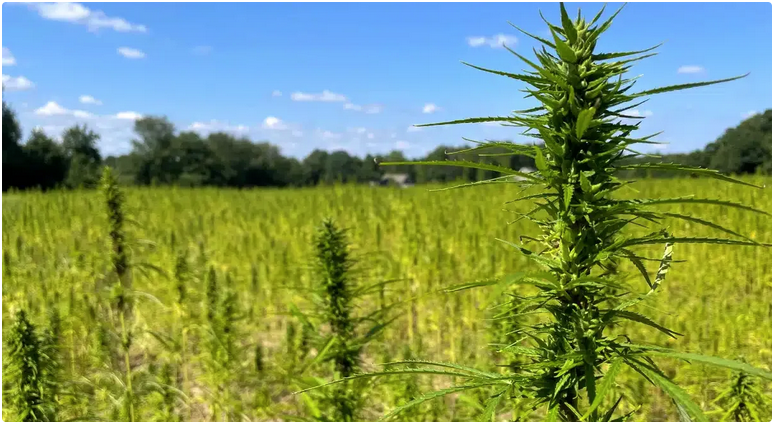
Today, Heartland announced the completion of its Life Cycle Assessment. This represents a shift in how manufacturers can look at the effectiveness of carbon-negative plastic additives.
A study completed by Presidio Graduate School and Steffan Unnasch, Managing Director of Lifecycle Associates showed that every 1 KG of Heartland’s Imperium Filler removes 3 KG of CO2e. This work was done under ISO 14040 Standards for Life Cycle Assessments.
This LCA will help brands and their suppliers predictably reduce the carbon footprint of their raw materials and end products.
High-Performance Carbon-Negative Plastic Additives
The research studied Heartland’s Imperium Filler as a replacement for mineral fillers commonly used in plastics. Specifically, the LCA quantifies filling plastic with 20% Imperium Filler to replace talc and calcium carbonate (two commonly used plastic additives).
Mineral fillers tend to be heavy materials that are used to reduce the cost of plastics. There is also data to support that these materials are toxic to the human body.
Our society is reliant on 800+ billion pounds of plastic every year. As we look to reduce the negative impact that these plastics have on the environment, we must look at both the resins, and the additives used to modify performance.
This life cycle assessment shows how Heartland’s Imperium Filler can systematically help large manufacturers reduce the carbon footprint of everyday products.
Hemp Additives + Recycled Materials = Carbon Negative End Products
Recycled plastic has a lower carbon footprint than virgin plastic. This makes it easier to create a carbon neutral, or carbon negative, end product that reinforces recycled plastic with Imperium Filler.
The carbon footprint of 1 pound of virgin plastic ranges from 3-6KG of CO2 per pound of plastic (depending on the specific resin). The carbon footprint of 1KG of recycled plastic is under 1KG of CO2. This is because the ‘additionality’ of recycling a plastic that already exists is the footprint required to collect, sort, clean, and break down the plastic so that it can be used again.
Imperium Filled Virgin Plastic
If virgin plastic has a carbon footprint of 3-6KG of CO2 for every KG of product, Imperium Fillers would need to be used at 40-70% load rates to achieve carbon neutrality.
Imperium Filled Recycled Plastic
If recycled plastic has a carbon footprint at or below 1KG of CO2 for every KG of product, Imperium Fillers would only need to be used at 14-25% to achieve carbon neutrality.
Imperium Filled Resin Is Decarbonized Plastic
Today’s Imperium-Filled Resin is a 20% Imperium-Filled recycled polypropylene. This plastic is post-industrial recycled, and carbon negative.
We engineered this resin to outperform a 20% talc-filled polypropylene.
As you can see, Imperium outperforms talc in tensile and flexural modulus and strength by 25%+. Our team has also engineered an alternative formulation with a notched IZOD above 2.0 for manufacturers who need more impact strength.
Beyond Plastic Additives
Heartland’s Imperium Filler is used as an additive to other raw materials like rubber, foam, asphalt, paper, and concrete.
This means that Heartland’s LCA unlocks so much more than just plastic additives. Manufacturers and builders will be able to create carbon-negative end products by leveraging Heartland’s additives in different applications.
Carbon Negative Concrete
Concrete makes up at least 8%+ of global GHG emissions. This is not due to the high carbon footprint of concrete, but the volume of total concrete moved each year.
Heartland’s Imperium Filler would only need to be used at (about) 10% load rates to create carbon-neutral, or carbon-negative, concrete.
Heartland is developing relationships in building material supply chains to support lighter-weight and lower carbon footprint concrete.
Decarbonizing Paper Supply Chains
The paper supply chain has been working with natural fibers since the beginning of time. They are used to working with alternative natural fibers to augment their raw material supply chain.
Heartland’s Imperium Filler can be used to create carbon-negative paper and corrugated products. With the rise of paper for packaging and single-use products, carbon-negative additives are positioned to help create supply chain resiliency.
The World’s Sustainable Material Innovation
Heartland’s Imperium Filler has been used in applications that the Heartland team couldn’t even imagine possible.
This means that all of the sustainable material innovations that our customers are working on can help create carbon-negative products.
We have clients using Imperium Filler as carrying agents for certain chemicals. We have clients using Imperium Filler for its thermal and acoustic insulation properties. There is even one partner who is using Imperium Filler as an additive in asphalt highways.
We get calls from all over the world from people who are interested in building products with lighter weight and lower carbon footprint materials.
If you think that your product could benefit from carbon-negative additives, reach out to our team today.
Join us in creating a carbon-negative future.
Source
Heartland, press release, 2022-11.
Supplier
Heartland Industries Inc.
Lifecycle Associates, LLC
Presidio Graduate School
Share
Renewable Carbon News – Daily Newsletter
Subscribe to our daily email newsletter – the world's leading newsletter on renewable materials and chemicals









